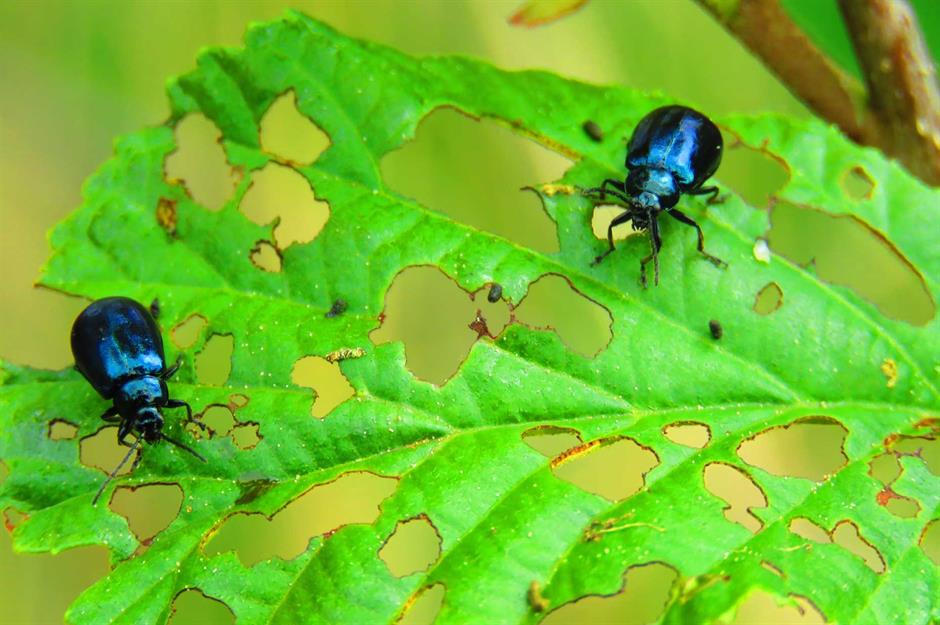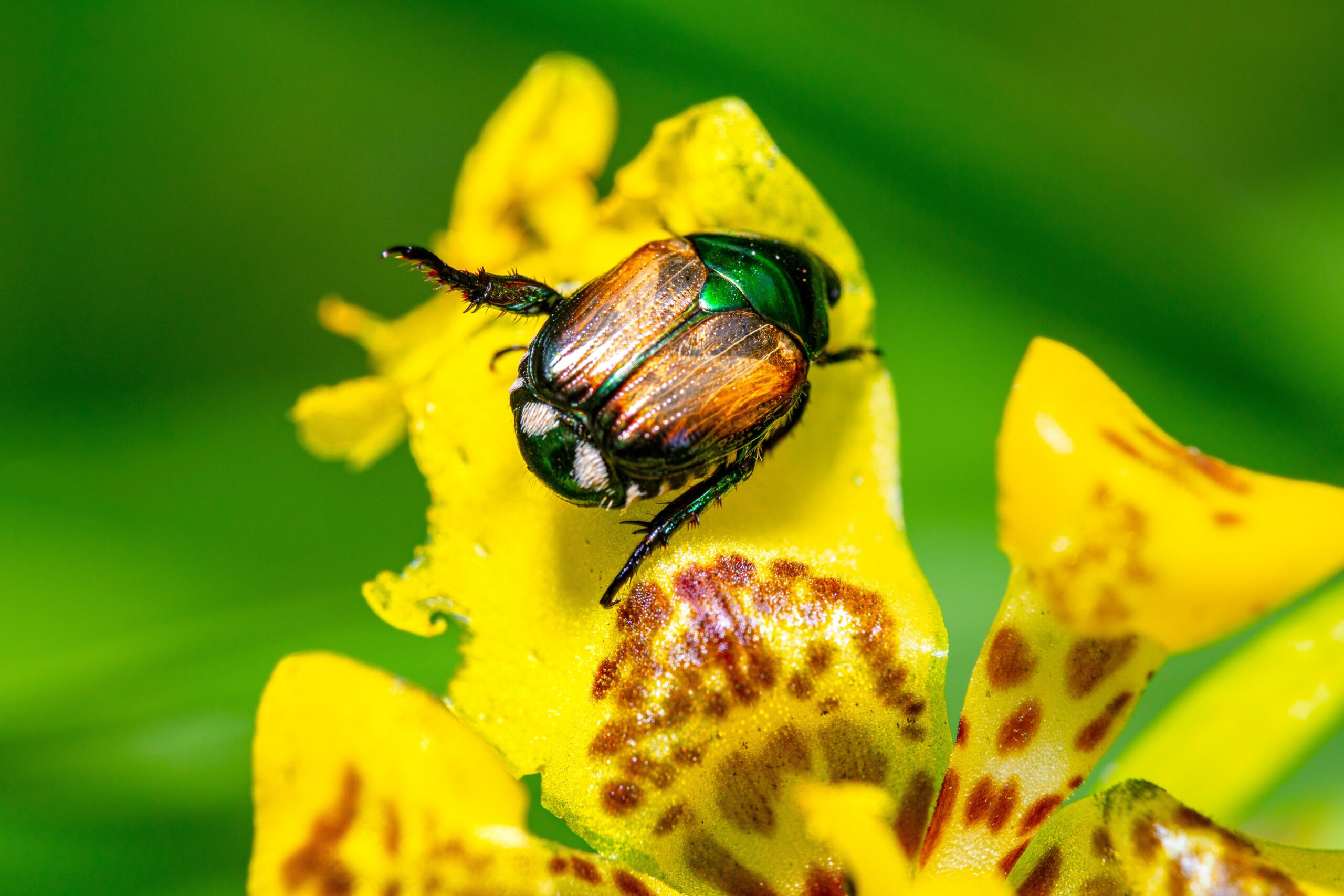While Japanese Beetles have been in the Denver area for some time, they seem to have made a much bigger splash the past couple of years, and not in a good way.
Unfortunately, they are here to stay, so we must learn to live with them. Before buying expensive products or embarking on time-consuming journeys to rid the garden of this pest, read these tips so that you can make informed decisions.
Tips for Managing Japanese Beetles in Community Gardens
- The adult form of the Japanese Beetle is responsible for foliage damage. Hand picking or shaking adult beetles off of plants into soapy water is the best strategy for control during the summer months when adults are actively feeding in gardens. Handpicking is best achieved in the morning when the beetles are more sluggish.
- Plants with foliage damage attract more beetles, so handpick regularly.
- If you are committed to applying every 3-4 days, you can also use Neem Oil with azadirachtin to control adults. This is an acceptable option for organic gardens. To prevent leaf burn and to avoid hurting honeybees, spray Need Oil in the evening.

- Jefferson County Extension recommends making your garden attractive to birds and amphibians that will naturally control adults. Provide a birdbath and a second source of water on the ground to increase predator populations.
- Traps marketed for Japanese Beetles are not shown to be effective in reducing populations, and in fact the scent emitted by the traps will oftentimes attract more beetles to your garden!
- Japanese beetles are highly mobile, so just because you are controlling them in your specific garden doesn’t mean they’ll go away.
- Eggs and larvae are very susceptible to drying and therefore it is advisable to let lawns go dormant between July and September.
- In a typical community garden with no turfgrass, control of this pest is focused on the adult form. Adults lay eggs in turfgrass in late summer and emerging larvae feed on turfgrass roots in the fall and spring. Adults are mobile and emerge in early summer. Therefore, biological controls such as milky spore and parasitic nematodes that target the larval stages are not a good use of money or time in a community garden setting where there is typically no turfgrass (but they can be effective options for the home garden and can be found at Arbico Organics).
For more information on Japanese Beetles, read more from CSU Extension: http://extension.colostate.edu/topic-areas/insects/japanese-beetle-5-601.




